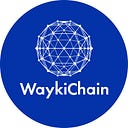WaykiChain Super Node Election Series 01: Obligations, Rights, and Interests of Super Nodes
Super Nodes are essential for the overall development of the public chain network and ecosystem. They will ensure the stable operation of the whole network and bring their advantages into play to let the WaykiChain ecosystem prosper.
Naturally, any efforts have the corresponding reward. Super Nodes have the right to initiate proposals, vote on them, and get incentives and share WaykiChain’s abundant resources in return.
1. What is a Super Node?
Blockchain is a decentralized system. It consists of a large number of nodes. Each of them works as a computer or a server terminal that stores all the blockchain data. Actually, a node is what we informally call a “miner”. Similar to traditional banking, nodes provide accounting services for user transactions and get some service fee or miner fee for their work.
The first consensus mechanism on blockchain is PoW that appeared in Bitcoin (BTC). In PoW, anyone can participate in accounting (“mining”). The second one is PoS where a small number of users with big cryptocurrency holdings and a long holding time perform accounting. PoS first appeared in Peercoin (PPC). A newer generation of projects adopted DPoS. Here the community selects the responsible person by voting and it does the bookkeeping and ledger maintenance. DPoS is both efficient and fair.
Simply speaking, in DPoS consensus mechanism, Super Nodes are a small number of nodes that have the right to produce blocks. Thus, Super Nodes are also called block producers. WaykiChain adopts DPoS and currently runs 11 official Super Nodes. Further it will increase the number to 21 and make the Super Nodes public. After the election, these Super Nodes will be in charge of producing blocks and will get the respective rewards.
2. Super Node Obligations
Accounting, however broad this definition is, is the important task of Super Nodes. There are other obligations, too.
From the network operation perspective, Super Nodes need to provide a suitable server and collect, verify, and pack transactions of the whole network. Then, they broadcast the transaction information to all other nodes. After verification completes, Super Nodes have to add the new block to their local blockchain. This process ensures the stable operation of the system. If a Super Node cannot provide such technical support, it can delegate the node server operation and maintenance work to a third party.
From the development and implementation perspective, Super Nodes need to make full use of their own development capabilities and commercial resources. Up till now, WaykiChain has developed the decentralized stablecoin WUSD, the decentralized collateral lending system Wayki-CDP, the decentralized exchange Wayki-DEX, and the decentralized synthetic asset protocol Wayki-X. The real use cases of the WUSD stablecoin are overseas payments and investment in Hong Kong innovative pre-IPOs.
However, WaykiChain’s development does not stop here. We encourage Super Nodes and other developers to expand the WaykiChain ecosystem, develop new products following the market changes and user needs, and increase the number of use cases to get more economic benefits in a more efficient way.
From the community perspective, Super Nodes need to head-on effectively promote WaykiChain’s values, ecosystem, and development goals. Super Nodes are representatives of WaykiChain community. They have to be able to organize and lead the community, expand it continuously, make it more active and healthier together with the WaykiChain team, and establish a solid global consensus.
3. Super Node Rights
In WaykiChain’s ecosystem, Super Nodes have the right to submit governance plans and vote. They use proposals to implement decentralized governance, adjust transaction fees, reward ratios, WICC inflation, and other parameters. They can also make proposals and apply to map assets of other blockchain on WaykiChain. What’s more, Super Nodes can propose an increase or decrease in the Super Node number.
After a Super Node voices the attitude or will of the community it represents, other Super Nodes must decide whether to approve the proposal. This is how the voting right of Super Nodes is implemented. When 2/3 or more nodes vote in favor of the proposal, it passes. Otherwise, it is rejected.
Here is another important right. Although WaykiChain team encourages Super Nodes to give away a certain amount of WICC yearly to compensate users who vote for them, a Super Node itself makes the final decision and sets the compensation amount.
4. Super Node Rewards
Super Nodes fulfil their corresponding responsibilities maintaining the safe and stable operation of the network, promoting commercial implementation, expanding the community consensus, etc. All these efforts are rewarded accordingly.
WICC yearly inflation is 1% of the initial supply, i.e., 2,100,000 WICC. These WICC tokens are divided equally between the 21 Super Nodes as the accounting reward. Each Super Node gets 100,000 WICC yearly. Besides this, WaykiChain Foundation will provide quarterly subsidies to ensure that each public Super Node that is not run by WaykiChain gets yearly accounting rewards of not less than 210,000 WICC.
Super nodes must participate in WaykiChain ecosystem construction to their own abilities. This includes maintaining network stability, product development, information dissemination in China and globally, product promotion, and customer conversion, etc. According to the performance in the above, WaykiChain has 5 reward levels, A, B, C, D, and E. They correspond with 60,000, 30,000, 20,000, 10,000, and 5,000 WICC quarterly contribution rewards, respectively.
Besides the above rewards, Super Nodes can also share WaykiChain’s ample technology, talent, community user, and media partner resources as per their business type, strengths, and weaknesses. They can learn from one another’s positive experience and thus strengthen their advantages and create key competitive features of their own.
